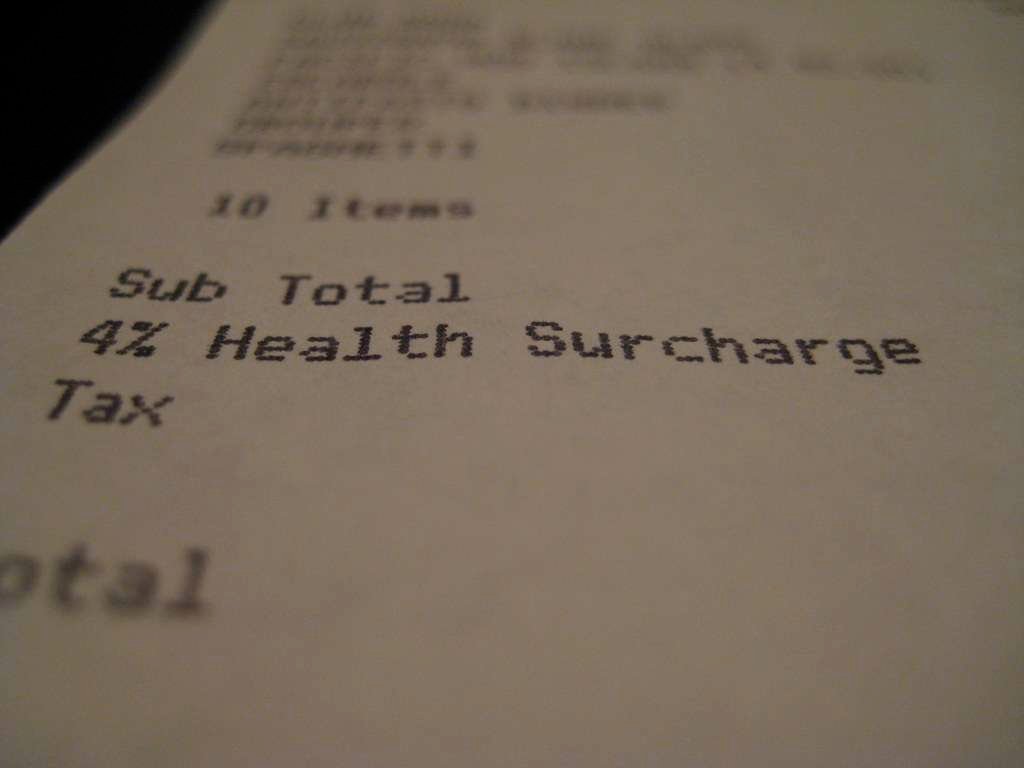The frustrating part is service fees rising unexpectedly, even though they’re expected to increase. Many of us will have to deal with additional fees, such as airport fee and fuel surcharge. These are likely to leave us with a total charge that exceeds our initial budget for the flight. This guide will review the subject of surcharges, explaining what they mean and how they work. Now consumers know how to save money and make extra payments without any extra charges.

What is a surcharge?
By adding a surcharge, the seller basically tacked onto the cost of a product or service a given fee or tax. That’s how unusual the situation is because consumers are not previously aware of the hidden fee, and so it makes them feel bitter. Surcharges can be fixed fees or a percentage of the service price. These emerging expenses are sometimes offset by the price and regulatory surcharges to protect the business or government profitability.
How Surcharges Work:
The role of surcharges is to add extra costs to the total amount paid by consumers at the end of the transaction. These may be set with the dollar amounts in mind. They might be linked to the total bill as a percentage.
Certain times, surcharges are not initialized to package cost and extracted later as a separate line item on the bill or invoice. For instance, purchasing an online concert ticket, you end up seeing a convenience fee at the checkout.
Bank and Credit Card Surcharges:
Lots of traders are levying extra fees on transactions made in a non-cash way, like with credit cards or any other digital means. These fees offset the gas expenses related to electronic payments, including the interchange fees from credit card companies.
Due to this, consumers may see those transactions attract extra costs, such as excessive fees, even when they don’t buy the biggest items. It’s wise to review the fine print for any additional charges based on your chosen payment method.
Types of Surcharges:
1. Credit Card Surcharge:
Retailers may quote an extra amount above the total sales cost made using credit cards in order to compensate for the processing fees. These levies may differ in digits and can be clarified later on. Businesses must comply with trade surcharge regulations in various regions.
2. Fuel Surcharge:
Companies in shipping or transporting areas might increase the fuel surcharges to keep up with the rising (or decreasing) fuel prices. Discounts are key factors that normally help make sure that the company remains profitable. It also cover all sums of money that are spent on fuel. The amount of fuel surcharges may depend on a ratio of factors. Such as the combination of distance covered and the current price of fuel.
3. Service Surcharge:
In the hospitality sector, service extras may include covering the cost of amenities given to guests. These costs are quite often added to the amount paid for the service, including how much this service costs. There may be extra charges for area maid service, concierge services, or access to facilities like pools or fitness centers.
4. Government Surcharge:
The government has the right to set over the charges on those products or services that fund specific programs or pay the regulatory costs. For instance, taxes applied to tobacco products or alcohol can be dedicated to public health initiatives. Governments may be required to create surcharges to unburden environmental protection efforts, such as recycling electronic devices.
Navigating Surcharges:
Assessment and planning of surcharges, as well as knowledge of them, are the tools of efficient surcharge management. Here are some tips for consumers:
Take note of the card transaction surcharges and fees commonly charged in the commercial sector. Also understand their impact on total transaction cost.
The first thing to understand is the fine print regarding any extra fees or charges. Then consumers need to consult with the provider in advance to make sure they fully comprehend.
Compare costs to know whether they are high or low, and inquire if there are added costs like charges and extra fees. You may choose businesses that give prices transparently and not rely on those that charge extra.
Prefer other payment options to evade third-party fees charged when a specific payment method is used. Think about using cash or debit cards instead of credit cards when making small transactions without the surcharges in accordance with the charges. This is imperative as it helps in the reduction of a surcharge that may exceed using a credit card.
How to Avoid Surcharge:
Surcharges shouldn’t be the only thing of concern. Rather, prevention requires actions and taking the time to seek alternatives. Here are some strategies for consumers:
Whenever a transaction is taking place, use cash or debit cards rather than credit cards. Several companies give customers gift cards or certain discounts if they choose to settle their bills with a debit or cash card and not credit cards that charge extra.
You also have to be weary of out-of-network charges, for example, ATM fees. When at a bank such as yours, forego ATMs that are associated with other banking institutions, or else you risk paying more for transactions not aligned with your type of banking.
Be equipped and conduct thorough investigations before you go shopping, whether it’s while traveling or using services like air transport and hotels.
Knowing this will help you make expected, calculated decisions and avoid such a mountain of unplanned additional charges.
Conclusion:
If a shopper pays a surcharge, s/he encounters rather an unavoidable feature of contemporary business; s/he types the industry into the category. To be an intelligent consumer, there is a need to be aware of what a surcharge is, its mechanism of operation, and effective navigation strategies for easy avoidance. Having alternative payment options or even a preparatory plan that will help you avoid inadvertent surcharges may help a lot of people keep their budget below a certain limit and be smart shoppers.




